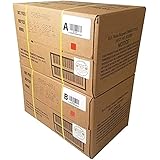Utilize Trusted News Sources
Identify Reliable Outlets
So, here’s the deal—I’ve learned the hard way that not all news is created equal. When an emergency hits, turning to trusted news sources is key. Major networks like CNN, BBC, or local news stations generally have the resources and accuracy we need. Make a list of your go-to channels, and don’t be shy about checking their credibility before believing everything you hear.
Your social media might be buzzing with news updates, but let’s face it: not everything shared online is factual. It takes only a couple of seconds for misinformation to spread like wildfire. I always recommend cross-referencing headlines with these reliable sources to confirm their integrity before sharing any updates.
Another tip? Follow local news outlets on social media. They often provide immediate updates during crises. It’s a quick and efficient way to stay in the loop—nothing beats that local flavor when it comes to emergency alerts.
Set Up Alerts
This may sound basic, but trust me, setting up alerts saved my sanity during a past emergency. Services like Google Alerts or even weather apps allow you to tailor notifications to what matters most to you, whether it’s severe weather, city emergencies, or public safety alerts. It’s about having that info right at your fingertips!
I personally like to dive into the settings of my apps to ensure I’m not just receiving generic alerts, but ones that really resonate with my location. For example, if you live in a cyclone zone, you definitely want those notifications twice as often!
Also, make sure your device settings are allowing notifications through. There’s nothing worse than having it all set up, but realizing you accidentally turned off alerts. Just a little technical hiccup can lead to a huge loss of crucial information!
Follow Emergency Services
Following local emergency services on social media is one of my favorite hacks! They provide timely updates during emergencies, and believe me, they often know what’s happening before the mainstream news can catch up. Check out your city’s fire department, police department, and emergency management offices online.
The connection can also be more personal; many of these services are committed to keeping their communities updated and informed. They might even share resources or tips that could be super helpful during a crisis. Plus, engaging with their posts can sometimes lead to even more useful information!
== > What if ... Get a FREE Subscription to PREPARE
And hey, don’t forget to check if they have SMS alert options! Text alerts from emergency services can be quicker than relying on internet access or social media feeds during a chaotic time.
Follow Official Government Channels
Visit Government Websites
One of my golden rules during an emergency is to rely on official government websites for up-to-date information. These sites usually provide the most accurate details about ongoing situations, evacuation orders, or public health announcements. Just make sure that it’s a government domain (like .gov) to ensure credibility!
Another secret I’ve found useful is bookmarking these sites ahead of time. It saves you from scrambling through links when an emergency hits; it’s all about being prepared. Take a few moments now to look up your local government’s emergency management page—trust me, you’ll thank yourself later.
Sometimes, these websites also feature live updates that can keep you informed without any noise or distraction. It’s a simple, straightforward way to know what’s going on without getting overwhelmed by emotional or sensational stories.
Sign Up for Emergency Notifications
Signing up for notifications from your state and local government can feel like a chore, but it’s so worth it. Many regions offer systems that notify residents about emergencies, weather alerts, and even community meetings. These notifications are usually delivered straight to your phone via text or email—a lifesaver when you’re juggling a million things.
I often recommend double-checking that you’re signed up for these alerts, especially as hurricane seasons approach or during heavy snowfall periods. Being proactive can make a huge difference when the time comes!
And if you move, don’t forget to update your information with the notification services. You don’t want to find yourself missing out on vital alerts in your new locality just because you forgot to sign up again. Keeping those details fresh keeps you connected!
Check Community Boards
Never underestimate the power of a good community board! Whether it’s online platforms like Nextdoor or community-driven Facebook groups, active neighborhood discussions can provide real-time feedback on local emergencies. These sources often highlight what’s happening that big news outlets might overlook.
Engaging in these communities can also help you understand how others are responding to the situation. They might share resources like food drives, medical help, or even safe spaces you weren’t aware of. I’ve found invaluable tips during past emergencies thanks to local residents banding together for info!
Just keep in mind, while these boards can be fantastic, it’s still vital to validate any concerning information you come across. Making sure what you’re hearing is accurate protects you from information being misinterpreted or blown out of proportion.
Use Technology Wisely
Apps for Emergency Preparedness
Let’s talk about the beauty of technology! There are so many apps out there designed for emergency preparedness—it blows my mind. Apps like FEMA, Red Cross, or local emergency apps not only provide real-time alerts but are also packed with emergency kits and safety checklists.
I’ve downloaded a couple of these myself, and can I just say, having this information laid out clearly is life-changing! You don’t want to be scrambling to gather supplies when an emergency is imminent. These apps can help you prepare, making sure you’ve got everything you need before a crisis hits.
And don’t forget: some of these apps can even work offline. This feature is invaluable because you might find yourself in a situation where connectivity is compromised. It’s just another layer of preparation that really pays off.
Communicate with Family & Friends
During an emergency, it’s super important to have open lines of communication with your loved ones. I make a point to regularly check in with my family during crises; setting up a group chat can simplify those touch bases. Knowing that everyone is safe can help ease anxiety on all fronts.
You could also set up a designated emergency contact or point person within your circle of friends. This way, if one person can’t be reached, they can relay information through someone else. It’s all about teamwork when things get tough!
And hey, in today’s world, exploring messaging apps that provide end-to-end encryption can also help maintain privacy during a chaotic period. Being prepared and secure is a win-win for everyone involved.
Stay Updated on Social Media
Finally, let’s not forget about social media. It can serve as an excellent real-time news source if you follow the right pages. Ensure to follow your local emergency management and public safety accounts—you’d be surprised how quickly they post updates compared to traditional media!
But, I must caution you: while social media is informative, it can also be overwhelming. Set boundaries for how much time you spend scrolling through news feeds during an emergency to avoid unnecessary stress. Sometimes, a quick check-in is all you need to stay informed without boarding the anxiety train.
Plus, consider leveraging hashtags for specific events (like #HurricaneAlert or #CityNameEmergency). It can help filter through information and find what’s relevant to you without sifting through a sea of unrelated posts.
Frequently Asked Questions
What should I do first when an emergency occurs?
Your first step should be to seek reliable information from trusted news sources. Doing so will help you understand the situation at hand and determine the best course of action.
How can I ensure I receive alerts during an emergency?
Make sure you have notifications enabled on your devices for emergency alert apps and services. Signing up for SMS or email alerts from local government and emergency services can also help ensure you receive timely updates.
Are social media updates always trustworthy during emergencies?
Not always. It’s important to verify information shared on social media through trusted news outlets or official sources to avoid falling for misinformation.
How can technology assist in staying informed during emergencies?
Technology offers various tools like apps, automated alerts, and communication platforms that keep you updated and facilitate readiness in emergencies. Using these wisely makes navigating crises much easier.
What if I’m unable to access the internet during an emergency?
If you cannot access the internet, having a battery-powered weather radio can be life-saving. It can provide continuous updates even when other communication methods fail.






